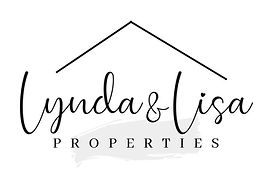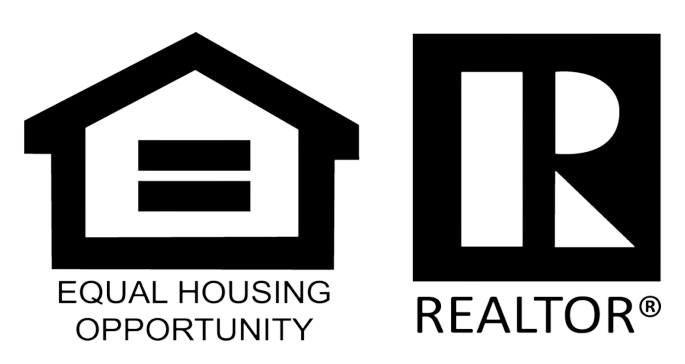Selling your house brings with it a flurry of financial considerations, with seller closing costs taking center stage. These costs are an amalgamation of various fees and deductions that, while often underestimated, play a pivotal role in the overall financial outcome of the sale. Understanding these costs demystifies the selling process and equips you with the knowledge to manage your expectations and financial planning more effectively. This introduction offers a comprehensive look into the essence of seller closing costs, aiming to prepare sellers for the financial intricacies involved in concluding a successful real estate transaction.

Preparing Your Home for Sale: Costs and Considerations
Selling a home is more than just setting a price and listing it; it involves careful preparation to showcase your property in its best light. Key to this process are maintenance, repairs, and staging, each with its own set of costs and considerations that can significantly affect your sale’s success and profitability. Starting with maintenance, regular upkeep not only preserves your home’s value but also prevents costly repairs down the line. This includes tasks like painting, cleaning gutters, servicing HVAC systems, and ensuring all fixtures and appliances are in good working order. Such proactive measures can enhance your home’s appeal and functionality, making it more attractive to potential buyers.
Repairs are another critical area, as they directly impact your property’s perceived value and safety. Addressing issues like leaky faucets, cracked tiles, or any structural damage before listing can lead to a smoother inspection process and reduce the likelihood of buyer-requested concessions. While the cost of repairs varies widely based on the extent of the work needed, investing in fixing significant issues can prevent deterring prospective buyers and help secure a better selling price.
Staging is the final touch that transforms your property into a welcoming, appealing space for buyers. Professional staging involves arranging furniture, decor, and lighting to highlight your home’s strengths and potential. While it represents an additional cost, staging has been shown to decrease the time a home spends on the market and increase its selling price. The investment in staging, therefore, not only enhances the property’s appeal but can also offer a substantial return by appealing to a broader range of buyers and generating competitive offers.
Maintenance, repairs, and staging form a strategic approach to preparing your home for sale. While involving upfront costs, these steps are investments in securing a successful and profitable sale. By understanding and planning for these expenses, sellers can navigate the selling process more confidently, ensuring their property stands out in a competitive market.
The Value of Partnering with a Real Estate Agent
In the intricate dance of selling a home, partnering with a real estate agent is a strategic move that offers undeniable advantages. Real estate agents are not just facilitators; they are seasoned navigators of the market’s complexities, bringing a wealth of knowledge, negotiation skills, and a comprehensive network to the table. Typical commissions for real estate agents range between 5% to 6% of the sale price, a fee that is shared between the seller’s and buyer’s agents. While this might seem like a significant expense, the benefits of having an expert advocate on your side can far outweigh the costs.
Agents play a crucial role in setting the right price for your home, a balance of market realities, and your financial aspirations. They conduct thorough market analyses to ensure your listing price is competitive, attracting serious buyers without underselling your property’s worth. Beyond pricing, agents are instrumental in marketing your home, employing traditional methods and digital platforms to reach a wide audience. High-quality photographs, compelling property descriptions, and targeted online advertising are just the tip of the iceberg.
Negotiation is another area where agents prove invaluable. With sharp negotiation skills honed through experience, they work to secure the best possible terms and price for your home, navigating through offers and counteroffers with strategic acumen. Their expertise extends to understanding and managing paperwork, ensuring compliance with legal and regulatory requirements, and guiding you through the closing process with minimal stress.
Furthermore, real estate agents offer critical support in preparing your home for sale, from advising on repairs and upgrades to coordinating staging efforts. They provide insights into what buyers in your area are looking for, helping you make informed decisions that enhance your home’s appeal and marketability.
Essentially, a real estate agent is more than a middleman; they are an essential partner in the selling process. Their knowledge, skills, and dedication can significantly affect the outcome of your sale, transforming a potentially overwhelming process into a manageable and more profitable endeavor. With a real estate agent by your side, you gain an expert in the field and a committed ally dedicated to achieving the best possible result for your home sale.
Elevating Your Listing: Marketing Expenses Explained
In today’s digital-first real estate market, the presentation of your property online can significantly impact how quickly your home sells and the offers you receive. High-quality marketing materials like professional photography and videography are not luxuries but essential investments that set your listing apart. This section delves into the critical role of marketing expenses in selling your home, focusing on the visual elements that captivate potential buyers.
Professional photography: A professional photographer specializes in showcasing properties in the best light, capturing your home’s unique character and features. These high-resolution images are potential buyers’ first impressions, making them pivotal in attracting interest and compelling buyers to visit in person.
Videography and virtual tours: With the advancement of digital marketing, videography, and virtual tours offer an immersive experience, allowing potential buyers to explore your property online. This tool is particularly effective for reaching out-of-town buyers or those who prefer to narrow their options before scheduling visits.
Drone photography: For properties with expansive outdoor spaces or unique landscapes, drone photography can provide an impressive aerial perspective, highlighting features that traditional photography might miss. This is especially appealing for luxury properties or homes with significant land.
Social media and online advertising: Leveraging social media platforms and online real estate listings with high-quality photos and videos can increase your property’s visibility exponentially. Targeted advertising campaigns can also draw in interested buyers who are actively searching in your area.
Integrating professional photography, videography, and strategic online marketing can transform your home selling process. These investments not only elevate the presentation of your property but also broaden its exposure to potential buyers, enhancing your chances of a successful and lucrative sale. In a market where first impressions are everything, allocating resources to marketing expenses is a strategic move that pays dividends in attracting serious, qualified buyers to your listing.
Unveiling Seller-Specific Closing Costs
When you’re on the brink of finalizing the sale of your home, understanding the closing costs you, as the seller, are expected to cover is crucial for a transparent and smooth transaction. These expenses are an assortment of fees, taxes, and other charges that culminate in the transfer of property ownership. They vary by location, property type, and sale price, but being informed about these potential costs upfront can help you budget effectively and avoid surprises at closing.
Title insurance: This ensures the buyer against any title discrepancies that might emerge, protecting both the buyer and lender. As the seller, you may be required to purchase this policy as a guarantee that the title is free of issues.
Transfer taxes: These are government-imposed taxes for transferring the title of the property from the seller to the buyer. The rate can vary significantly depending on your locality.
Attorney fees: In some states, having an attorney present at closing is customary or required. These fees cover the cost of legal representation for reviewing and finalizing the sale documents.
Escrow fees: Typically split between the buyer and seller, these fees compensate the escrow company for managing the funds and documents involved in the transaction.
Outstanding liens or judgments: If there are any claims against your property for unpaid debts, these must be settled before the sale can conclude.
Prorated property taxes: You are responsible for the property taxes up until the sale date, which might require payment at closing if not previously settled.
HOA fees: If your property is in a homeowner’s association, you must clear any outstanding fees or prorated dues.
After covering the range of potential closing costs, it’s evident that selling a home involves more than just handing over the keys. Each of these costs contributes to the intricate process of transferring property ownership, and being prepared for them ensures a smoother, more predictable sale. Understanding and budgeting for these expenses early can significantly reduce the stress of selling your home, allowing you to focus on your next move.
Navigating Capital Gains Tax on Your Home Sale
When selling your home, the prospect of making a profit is generally seen as positive news. However, it’s important to consider the tax implications of these profits, specifically capital gains tax. This tax is applied to the profit made from the sale of your property, calculated as the difference between the selling price and your original purchase price, after adjusting for various expenses and improvements. Understanding capital gains tax, including when it applies and potential exclusions, is essential for sellers to manage their finances effectively and avoid surprises come tax time.
The Internal Revenue Service (IRS) offers a significant exclusion for homeowners, allowing individuals to exclude up to $250,000 of profit from capital gains tax, with married couples filing jointly eligible for up to a $500,000 exclusion. To qualify for this exclusion, you must have owned and used the home as your primary residence for at least two of the five years preceding the sale. This rule enables many sellers to avoid capital gains tax entirely on the sale of their home.
However, if your profit exceeds these exclusion limits, the excess amount may be subject to capital gains tax. The rate at which this tax is applied varies, typically ranging from 0% to 20%, depending on your overall income. Additionally, the length of time you’ve owned the property can influence the rate, with assets held for over a year being subject to long-term capital gains rates, which are generally lower than short-term rates.
For sellers who might face capital gains tax, there are strategies to reduce the taxable amount, such as keeping thorough records of home improvements and selling expenses. These costs can increase your home’s adjusted basis, effectively reducing the taxable profit.
Given the complexity of tax laws and the potential for significant financial impact, consulting with a tax professional is highly advisable. They can provide personalized advice based on your situation, ensuring compliance with tax regulations while optimizing your financial outcome. Planning for capital gains tax as part of your overall strategy for selling your home is a prudent step toward a successful and financially sound sale.
Strategic Investments for a Stellar Sale
Optimizing your home sale involves more than just addressing necessary repairs and marketing effectively; it also includes considering strategic, non-required investments that can significantly enhance your property’s appeal and potentially expedite the selling process. Investments such as a listing appraisal, pre-inspection, and offering a home warranty can add value and instill confidence in potential buyers. This section explores these options, highlighting their benefits while noting their role in the broader context of the sale.
A listing appraisal provides an unbiased home valuation, offering a solid foundation for setting your asking price. This step can help justify your price to potential buyers, reducing the likelihood of prolonged negotiations. It’s an upfront investment that can facilitate a smoother sales process by aligning expectations from the start.
A pre-inspection, conducted before listing your home, can uncover any hidden issues that could derail a sale later. Addressing these problems early or disclosing them to potential buyers can prevent surprises and build trust. However, it’s important to understand that a pre-inspection does not substitute for the buyer’s inspection, which will be required by their lender as part of the closing process. Similarly, the listing appraisal does not replace the appraisal conducted on behalf of the buyer’s lender. These steps, initiated by the buyer, are essential for their financing approvals and are separate from your initial investments.
Offering a home warranty can make your property more attractive by giving buyers peace of mind regarding future repairs. These warranties cover the cost of replacing or repairing home systems and appliances if they fail after the sale, offering a safety net that many buyers appreciate.
While these investments are not mandatory, they can be strategic tools in your selling arsenal. A listing appraisal and pre-inspection provide valuable insights and transparency, making your home more appealing and trustworthy to buyers. Including a home warranty can further sweeten the deal, making your home stand out in a competitive market. Together, these strategic investments can pave the way for a faster, more lucrative sale, demonstrating your commitment to transparency and quality.
Planning for Moving: A Seller's Guide
As you approach the closing stages of selling your home, it’s essential to consider the logistical and financial aspects of moving to your next destination. Moving expenses can vary widely based on the distance, the volume of belongings, and the level of service required. This section provides a comprehensive overview of what sellers should anticipate in terms of moving costs, offering insights to ensure a smooth transition to your new home.
Hiring professional movers is a common choice for many sellers, offering convenience and efficiency. The cost of these services can vary significantly based on whether you’re relocating locally or long distance. Local moves are typically charged by the hour, while long-distance relocations are priced based on the total weight of your belongings and the distance traveled. Opting for full-service movers who pack, load, transport, and unpack your items can alleviate much of the stress associated with moving but comes at a higher cost.
Renting a moving truck and handling the move yourself is a more budget-friendly option. This approach allows for greater flexibility and control over the moving process but requires significant time and labor investment. Remember to account for the rental cost, insurance, fuel, and any additional equipment you might need, such as dollies or furniture pads.
Packing materials is another essential consideration. Whether hiring professionals or moving yourself, you’ll need various boxes, tape, bubble wrap, and other supplies to protect your belongings. The cost can add up, especially for large homes or if you have many fragile items.
Lastly, consider the expenses associated with setting up your new home, which may include utility deposits, cleaning services, or immediate home repairs. These often-overlooked costs can impact your overall moving budget.
Moving represents a significant phase in the selling process, involving careful planning and budgeting. By understanding the potential expenses and exploring your options, you can make informed decisions that align with your needs and financial situation. Whether opting for the convenience of professional movers or the savings of a DIY approach, planning ensures a smoother transition to your next chapter.
Setting the Stage: Pricing Your Home for Success
Pricing your home accurately is pivotal to attracting serious buyers and securing a swift sale. Striking the right balance between competitive market rates and your financial aspirations can seem daunting, but it’s achievable with careful analysis and strategy. This crucial step sets the tone for your selling journey, influencing how quickly your home sells and the offers you’ll receive.
The foundation of effective pricing lies in a comprehensive market analysis, which examines recent sales of similar properties in your area, known as comparables, or “comps.” This analysis helps gauge the current market temperature, identifying trends that affect property values, such as buyer demand and home availability.
Consideration of your home’s unique features and condition is also essential. Upgrades, renovations, and special attributes like a prime location can justify a higher price point, whereas needed repairs or less desirable features might necessitate adjustments.
An often overlooked yet critical aspect of pricing is psychological pricing strategies. Setting a price slightly below a round number, for example, $299,000 instead of $300,000, can make a listing more attractive to buyers. This approach taps into buyer psychology, potentially drawing more interest and offers.
Pricing flexibility is key. The real estate market is dynamic, and initial listing prices may need adjustment based on feedback from showings and open houses. Being open to revising your price can help you capture the interest of buyers who are comparing options in your area.
Collaborating with a real estate agent can provide invaluable insights into effective pricing strategies. Agents bring their understanding of the local market and an objective perspective on your home’s value. They can guide you through pricing, combining their expertise with your personal goals to set a competitive and realistic price.
Effectively pricing your home demands a blend of market awareness, an understanding of buyer behavior, and the flexibility to adapt to feedback. By approaching this task with thorough research and strategic thinking, you position your home for a successful sale, attracting offers that reflect its true value.
Charting Your Path to a Successful Sale
In navigating the complexities of selling your home, from preparing your property and understanding closing costs to strategizing on marketing and pricing, each step plays a crucial role in steering toward a successful transaction. The journey of selling a home is multifaceted, encompassing a range of financial, logistical, and emotional considerations. Armed with knowledge on essential topics like capital gains tax, moving expenses, and the invaluable role of a real estate agent, you’re better equipped to make informed decisions that align with your goals.
As you stand on the threshold of this significant milestone, remember that the right support can transform this experience, turning challenges into opportunities for a favorable outcome. When you’re ready to take the next step in selling your home, consider contacting us. We can guide you through this intricate process with expertise and care. A dedicated real estate professional brings a wealth of experience and an understanding of the local market dynamics, ensuring your journey to a successful sale is smooth and rewarding.
If you’re contemplating selling your home and seeking a partner to confidently navigate this journey, we invite you to connect. Together, we can explore the best strategies tailored to your property, ensuring your home attracts potential buyers and secures a sale that meets your expectations. Let’s chart your path to a successful sale, making your real estate goals a reality.


